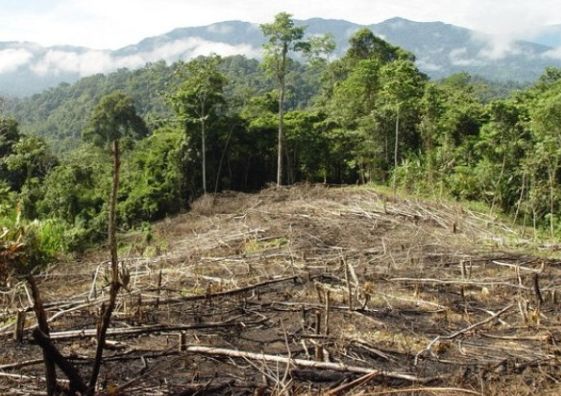International Day of Forests, observed on Monday, March 21, 2022, under the theme “Forests and sustainable production and consumption,” has been described by the United Nations as an opportunity to highlight the significant role of forests in the context of climate change.

Forests globally are under immense pressure. The Intergovernmental Panel on Climate Change’s (IPCC) 6th Assessment Report finds that forests are under severe threat, while sustainably managed forests play an important role in both reducing greenhouse gas (GHG) emissions and adapting to the impacts of climate change.
Forests also provide many other ecosystem goods and services, such as protecting biodiversity and maintaining water supply and soil quality, as well as contributing to the sustainable livelihoods of millions of people around the world.
The risk of wildfires is also increasing, and UNEP this month issued an urgent call to governments to rethink their approach to extreme wildfires.
How the international community is taking action on forests
Last year’s UN Climate Change Conference COP26 in Glasgow made pivotal progress on the sustainable management and conservation of forests. Over 130 leaders, representing more than 90% of the world’s forests, committed to work together to halt and reverse forest loss and land degradation by 2030.
World leaders, industry big players, non-governmental groups and community groups joined in pledging steps, including the provision of finance, towards ending global deforestation and forest degradation.
Twelve countries announced in the COP 26 Global Forest Finance pledge to collectively provide $12 billion for forest-related climate finance between 2021 and 2025. These pledges will cater for enhanced collaboration to halt and reverse forest loss and land degradation by 2030.
In addition, they took forward work on an existing framework known as REDD+, which can play an important role in curbing greenhouse gas emissions from deforestation.
REDD+ stands for “Reducing emissions from deforestation and forest degradation in developing countries” as defined by the Warsaw Framework for REDD+ and emphasised in Article 5 of the Paris Agreement. It is a tool that fosters collaboration with the aim of halting and reversing forest loss in developing countries.
It consists of several building blocks, including capacity-building activities that increase the readiness of countries for REDD+ implementation.
Growing support for REDD+
Under the REDD+ framework, developing countries are taking concrete steps towards ending deforestation and forest degradation, and the number of countries implementing REDD+ actions is increasing.
One key incentive of REDD+ is results-based payments for emission reductions achieved. To receive results-based payments, developing countries are required to measure, report and verify their activities and results. The first vital step is establishing a baseline for evaluating reduced greenhouse gas emissions, which then undergoes technical assessment by independent experts from other countries.
Since 2014, 56 developing countries have submitted their reference levels, 12 of whom fulfilled all requirements and are now entitled to seek results-based payments.
A technical assessment week taking place from March 21 to 25, 2022, will be important for the transparency of REDD+ activities. Twelve REDD+ developing and developed country experts will join this 9th technical assessment session for proposed REDD+ reference levels either in Bonn or virtually.
Six countries: Dominica, Dominican Republic, Guatemala, Indonesia, Panama and Paraguay will undergo the technical assessment process. Dominica and Guatemala have already submitted their first reference level for a technical assessment. The other countries have improved their methodologies and data over time and have updated their reference levels.
This session will be crucial to enhancing developing countries’ ongoing efforts on REDD+; improving the construction of reference levels to be more accurate and transparent; and to building capacity in technical knowledge and skills.
